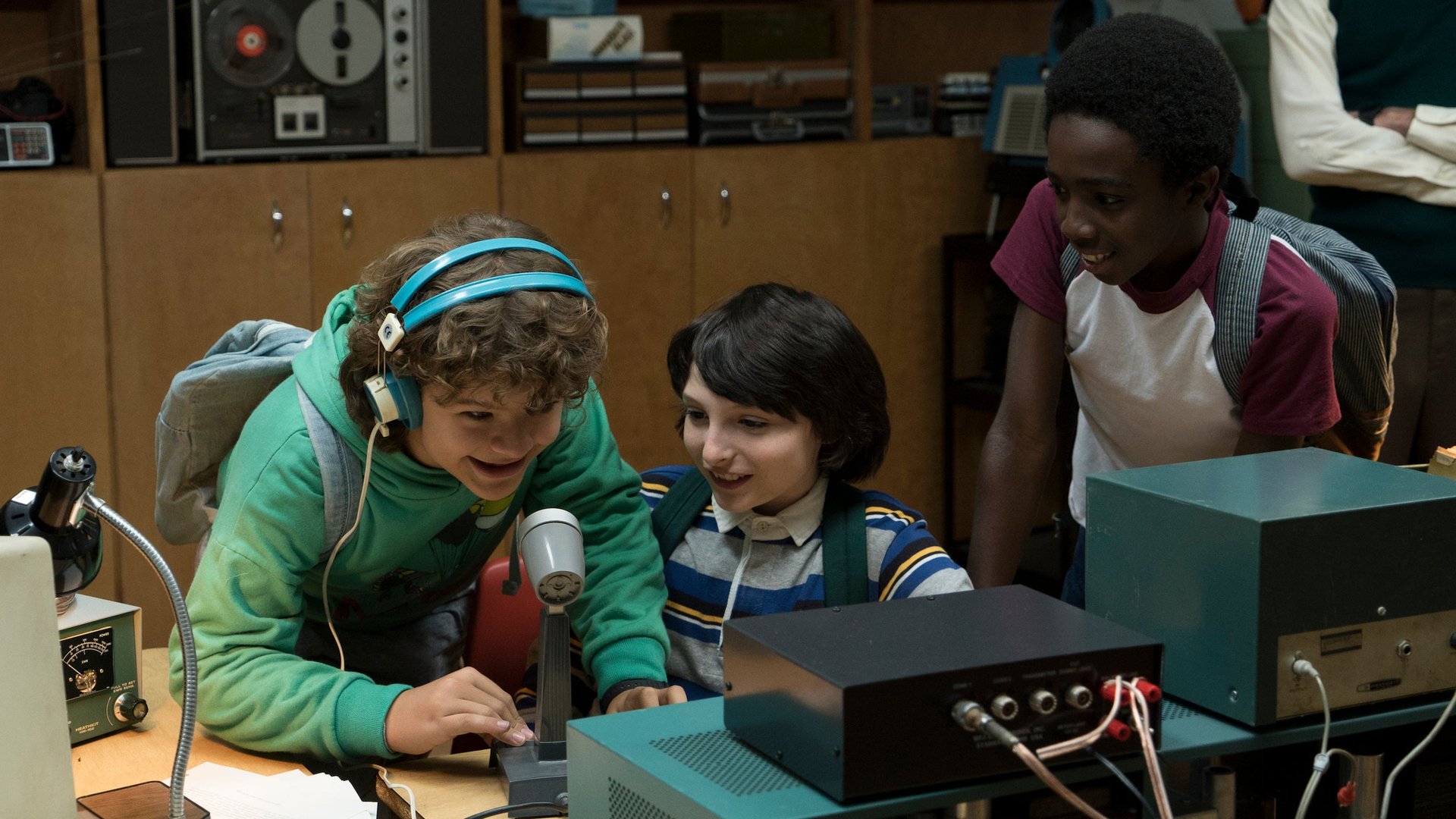“Stranger Things” is spot-on about the importance of male friendships
The hit Netflix sci-fi series Stranger Things is awash in the glory of 1980s nostalgia. The soundtrack is synth-heavy; the cinematography is in grainy technicolor. The pants ride high. Winona Ryder, who rose to prominence as a teenage actress in 1980s cult favorites like Heathers and Beetlejuice, has a starring role. And its wide-eyed approach to suspense mirrors Steven Spielberg classics like ET and The Goonies.


The hit Netflix sci-fi series Stranger Things is awash in the glory of 1980s nostalgia. The soundtrack is synth-heavy; the cinematography is in grainy technicolor. The pants ride high. Winona Ryder, who rose to prominence as a teenage actress in 1980s cult favorites like Heathers and Beetlejuice, has a starring role. And its wide-eyed approach to suspense mirrors Steven Spielberg classics like ET and The Goonies.
For me, Reagan-era nostalgia is purely theoretical—I was born in 1990. But the series also taps into a strain of nostalgia that likely feels personal to men of all ages. It’s the rare pleasure of reliving the tight-knit friendships of our own boyhoods onscreen.
Stranger Things centers on the close friendship between four pre-teen boys: Will, Dustin, Mike and Lucas. One of the pack goes missing at the outset of the series, and the rest of his pals embark on a mission to find him and bring him back.
The series masterfully captures the earnest camaraderie between boys of that age. The group operates under an intricate code (he who draws first blood in a fight must apologize first). They invent secret handshakes that take a solid five minutes to perform. At night, they communicate by walkie-talkie far past bedtime.
Boys of that age tend to bond over single-minded obsessions. The kids of Stranger Things play epic, 10-hour games of Dungeons and Dragons in Mike’s basement. My friends and I were similarly enthralled with the James Bond video game Golden Eye. Like Will, Dustin, Mike and Lucas, we spent Friday nights trading lighthearted barbs in carpeted basements. We’d gorge ourselves on Domino’s and squirt soda through our noses at jokes parroted from Monty Python or Saturday Night Live. At dusk in high summer, we’d play kickball in the park, or Velodrome around cul-de-sacs on Schwinn bikes.
The world is rapidly expanding when you’re a boy of 11 or 12 or 13. Its dimensions are as big as your bicycle will take you–plenty far enough to get into trouble. But it’s not yet so large as to encompass thoughts of dating and learner’s permits and varsity letters. These were relatively easy days, irretrievable moments of pre-adolescent bliss.
These friendships don’t go away as boys grow up. But the dynamics often change as teenage boys and young men feel pressure to live up to ideals of self-sufficient masculinity. Over time, they become less open and affectionate with one another. In high school, I drifted away from a number of male friendships for precisely this reason, finding the women in my life more willing speak honestly about vulnerability, anxieties about the future and struggles with self-worth.
The deep loyalty between boys can make them feel ready to take on the greatest of existential crises. (An interdimensional demon wreaking havoc on your small hometown in Indiana, for instance.) As boys grow up, they still face demons–only they’re not supposed to talk about them with each other anymore. Emotionally cut off from one another, they turn to more traditionally masculine modes of outlet: jokes, denial, even substance abuse.
This attitude is reflected in our movies and TV shows. There are ample pop culture portraits of close-knit friendships between pre-teen boys, from Goonies, Stand by Me, and The Sandlot to The Wonder Years and Freaks and Geeks. But onscreen friendships between older boys or men are largely professional or comical. Think True Detective, The Hangover, Anchorman, or Entourage. If men are going to hang out with each other onscreen, they’d better have a good excuse.
The dearth is so wide that I can’t think of a single recent movie or television show, save perhaps Oceans 11, that instills healthy notions of masculine friendship for younger viewers. Which is a shame, because it only reinforces the notion that men should be lone cowboys, preserving their own emotional well-being with no help from anyone else. It should go without saying that this is a recipe for misery, if not outright disaster.
My hope is that Stranger Things will spawn a renaissance of smart films and shows about male friendships—onscreen offerings that showcase boys and men who are as caring as they are boisterous. We all know that boys will be boys. But they can be much more, if we let them.